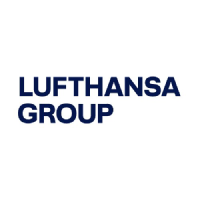Aug. 4 (Bloomberg) -- China's Baidu.com Inc., a search engine that models itself on Google Inc., is seeking to raise as much as $101 million in a U.S. initial public offering today after raising the offer by 30 percent to meet investor demand.
Beijing-based Baidu.com and its shareholders boosted the number of shares they plan to sell to 4.04 million from 3.7 million. They are now asking as much as $25 a share, up from $21, according to regulatory filings. The money raised will fund new features and help Baidu.com gain a bigger slice of China's online advertising market.
Baidu.com, founded in 2000, is tapping growing investor demand for Chinese companies and is taking advantage of surging search-engine stocks. Search advertising in China is expected to quadruple to 5.62 billion yuan ($690 million) by 2007, according to researcher iResearch Inc. Shares of Google, which owns about 2.6 percent of Baidu.com, sold in an August 2004 IPO for $85 and are now near $300.
``Look at the chart of Google and you can see why there's so much interest in this deal,'' said Sal Morreale, a sales trader at Cantor Fitzgerald & Co. in Los Angeles, who follows new issues and isn't involved in Baidu.com's offering. ``This deal was on the radar screens very, very early.''
Goldman Sachs Group Inc. and Credit Suisse First Boston are managing Baidu.com's share sale, which will represent about 13 percent of the company. Baidu.com's American depositary shares will start trading tomorrow on the Nasdaq Stock Market under the symbol ``BIDU.''
Surge Likely
At $25 a share, the company would have a market capitalization of about $808 million. Shares of Google, which raised $1.67 billion in its IPO and has a market value of $83 billion, fell $1.89 to $297.30 yesterday in Nasdaq Stock Market composite trading.
Baidu.com shares probably will surge when they begin trading, said John Fitzgibbon, an analyst in New York with IPOdesktop.com, a Web site that tracks initial public offerings. The first day of trading is scheduled for tomorrow, according to Bloomberg data. Fitzgibbon said he is expecting a ``pop.''
The company will sell 3.2 million shares and shareholders are offering 831,700 shares, according to the filing. A further 564,000 shares may be sold if demand is strong enough.
The sale is likely after the close of U.S. stock markets later today.
Founders Selling
Founders Robin Li, 37, and Eric Xu, both Chinese citizens who were educated in the U.S. are both selling stock.
Li, the company's chief executive, plans to sell 250,000 shares, or 3 percent of his stake, worth as much as $6.25 million. His remaining 22 percent stake will be worth as much as $181.8 million, assuming the shares are priced at $25 each.
Li got his masters degree in computer science from the State University of New York at Buffalo. He worked as an engineer for search engine Infoseek Corp. before returning to China to found Baidu.com.
Xu got his doctorate from Texas A&M University and plans to sell 160,000 shares, or 7 percent of his stake, worth as much as $4 million. His remaining 7 percent stake will be worth as much as $55.5 million.
Cayman Islands-based Draper Fisher Jurvetson ePlanet Ventures L.P., a venture capital firm, owns 28 percent, and doesn't plan to sell any shares in the IPO. Danville, California-based Integrity Partners holds an 11 percent stake.
Mimics Google
Li and Xu picked Baidu.com's name from a poem written during China's Song dynasty about a man searching for his lover and going ``all the way to look for her,'' according to the company's Web site.
The Chinese company's site echoes Google's stark pages. Baidu.com has a single search box accompanied by a blue paw-print. Like Google, Baidu.com makes money by allowing advertisers to bid in online auctions to be displayed alongside search results. Advertisers pay a fee when users click on the ads.
Google and Yahoo! Inc., which rank second and third behind Baidu.com in China, are also making investments in the country. Yahoo acquired 3721 Network Software Co. for as much as $123 million in November 2003. Google in July hired former Microsoft executive Kai-Fu Lee to open a Chinese research lab.
``You get a sense that something amazing and enormous is happening'' in China, Google Chief Executive Officer Eric Schmidt, 50, said in a July 21 interview. ``The Internet in China is still underdeveloped.''
Baidu.com's sales almost tripled to 110.9 yuan in 2004 from a year earlier. The company had a 2004 net income of 12 million yuan in 2004, compared with a net loss of 8.89 million yuan a year earlier.
Competition
The company faces competition for Web surfers from home-grown Chinese Internet companies including Sohu.com Inc. and Netease.com Inc., which are based in Beijing, and Shanghai-based Sina Corp. All three companies are traded on the Nasdaq Stock Market.
Shares of Netease, which runs a Web site and offers online games, surged 21 percent yesterday to $72.51 after the company said second-quarter profit doubled to $29.3 million.
The number of Internet users in China rose 18 percent to 94 million in January, Piper Jaffray Co. analyst Safa Rashtchy said in a July 8 note.
Baidu.com accounts for 37 percent of the Chinese search market, according to Analysys International Ltd., a Beijing-based market researcher. Google accounted for 23 percent and Yahoo for 21 percent.
Chinese search engines also have to deal with language nuances. As sentences in Chinese are made up of phrases that represent words in English, search engines need to break down the phrases before matching them against a user's search, Baidu.com said in regulatory filings. Chinese phrases also have more meanings than their English equivalents, adding to the complexity.
To contact the reporter on this story:Jonathan Thaw in San Francisco at jthaw@bloomberg.net.Last Updated: August 4, 2005 00:14 EDT
< script language=JavaScript xmlns:nav="http://www.bloomberg.com/navigation" xmlns:wn="http://www.bloomberg.com/bloomberg-web-news" xmlns:webad="http://www.bloomberg.com/webad"> adType = "std"; Category = "03"; HCat = "WDH8"; Keys = "null"; Width = "3"; Height = "3"; Tile = "2";CallAd(adType, HCat, Width, Height, Tile, Keys, Category); < /script>< script language=JavaScript src="http://ads.blp.valueclick.net/cycle?host=hs0002498&b=pagebuster.809&v=1.2.20&c=03&null&kpos=2&hcat=WDH8&bso=listed&msizes=3x3&t=js"> < /script><!--[if gte vml 1]> <![endif]--><![if !vml]>![]() <![endif]>
<![endif]>
< script language=JavaScript xmlns:webad="http://www.bloomberg.com/webad"> adType="pop"; Width=""; Height=""; Category = "03"; HCat = "WDH8"; Keys=""; Tile="1"; CallAd( adType, HCat, Width, Height, Tile, Keys, Category ); adType="std"; Width="1"; Height="1"; Category = "03"; HCat = "WDH8"; Keys=""; Tile="1"; CallAd( adType, HCat, Width, Height, Tile, Keys, Category );< /script>< script language=JavaScript src="http://ads.blp.valueclick.net/cycle?host=hs0002498&b=pagebuster.145&v=1.2.20&c=03&kpos=1&hcat=WDH8&size=medium&t=pop">< /script>< script language=JavaScript src="http://ads.blp.valueclick.net/cycle?host=hs0002498&b=pagebuster.255&v=1.2.20&c=03&kpos=1&hcat=WDH8&bso=listed&msizes=1x1&t=js">< /script>
 68.63 (254.19)
68.63 (254.19) 52.82 (195.63)
52.82 (195.63) Werbung
Werbung





 98,76 (365,78%)
98,76 (365,78%)





















